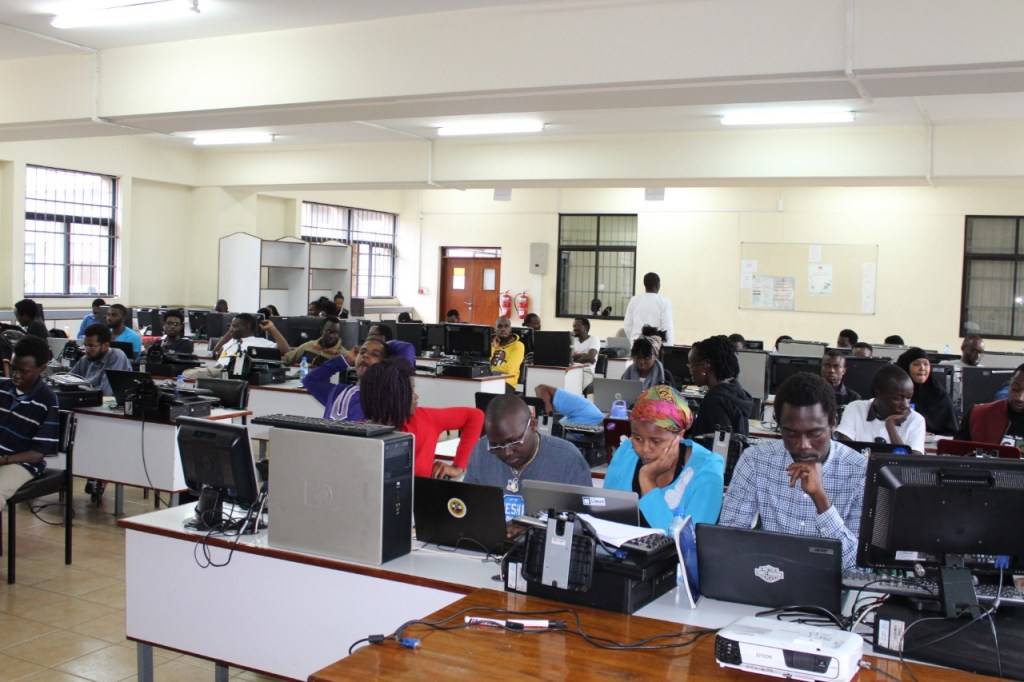Open-source technology is experiencing vibrant and dynamic growth across Africa, driven by a confluence of innovation, community engagement, and strategic adoption. Governments, educational institutions, startups, and enterprises are increasingly embracing open-source solutions to foster local innovation, reduce costs, and address regional challenges. Across the continent, a burgeoning ecosystem of developer communities contributes to global projects while also creating tools tailored to Africa’s unique needs. From civic tech initiatives that promote transparency to open-source hardware driving the maker movement, open source is empowering Africans to take control of their technological future. As open data initiatives and policy advocacy gain momentum, the potential for open source to catalyze further development and innovation in Africa is immense.

Key Trends Driving Open Source in Africa
1. Open Source Software Adoption
Government and Education Sector:
Many African governments and educational institutions are increasingly adopting open-source software to reduce costs and encourage local innovation. Countries like Kenya, South Africa, and Nigeria have initiatives that promote the use of open source in public administration and schools.

Startups and Enterprises:
African startups and enterprises are leveraging open-source technologies to build scalable solutions. This includes the use of platforms like Linux, OpenStack, and various programming languages like Python and JavaScript. Open source has become the top choice for companies focused on remaining future-fit, enabling IT departments to bring ideas to market faster and eliminating the need for expensive licenses. This shift from proprietary software towards open source solutions is accelerating rapidly, with Enterprise Open Source expected to play a larger role in emerging technologies over the next two years.
2. Community and Ecosystem Growth
Developer Communities:
There is a growing number of active open-source communities and meetups across Africa, such as Python Nigeria, She Code Africa (SCA), and GDG (Google Developer Groups) chapters. These communities organize events, hackathons, and contribute to global open-source projects. One standout example is the Open Source Community Africa (OSCA), which builds communities through chapters, festivals, and open-source projects, aiming to increase credible open-source contributions from the region.


Local Contributions:
African developers are increasingly contributing to global open-source projects and creating region-specific tools. Projects like Ushahidi, an open-source platform for data collection, and OpenStreetMap, with its strong mapping community in Africa, are prime examples of this trend.
3. Open Source for Social Good
Civic Tech:
Open source is being used to address social issues through civic tech projects. Initiatives like Code for Africa leverage open-source tools to promote transparency, data journalism, and citizen engagement.

Health and Agriculture:
Open-source solutions are being developed for health care and agriculture, including mobile health apps and open data platforms that help farmers access crucial information.
4. Capacity Building and Education
Training Programs:
Organizations across Africa are running training programs to build capacity in open-source technologies. Examples include Andela’s developer training programs and the African Open Source Academy in South Africa. This aligns with initiatives like those of the Living Open Source Foundation in Zambia, which is organizing training programs to empower local communities.

Open Educational Resources (OER):
There is a growing movement towards open educational resources in Africa, with institutions adopting open textbooks and other learning materials to make education more accessible.
5. Open Source Hardware
The maker movement, supported by open-source hardware like Arduino and Raspberry Pi, is gaining traction in Africa. This is fostering innovation in areas such as IoT (Internet of Things), robotics, and renewable energy. Open source is becoming the gateway to future technological solutions, with web, mobile, and cloud solutions increasingly built on open-source infrastructure. Many data and analytic solutions are now only available in open source, and future architectures are highly likely to be based on open-source technologies.
6. Government Policy and Advocacy
Open Data Initiatives:
Governments are increasingly promoting open data policies, often tied to open-source technologies. South Africa and Kenya are leading examples where open data portals are being established.

Policy Advocacy:
There is growing advocacy for open source policies at the national and regional levels, aimed at reducing software piracy, lowering costs, and fostering local innovation.
Conclusion
The open-source movement in Africa is not just a trend; it’s a transformative force that is reshaping how technology is developed, shared, and implemented across the continent. As more African countries and communities embrace open source, the opportunities for innovation, economic growth, and social impact are boundless. Whether through government initiatives, startup ecosystems, or grassroots communities, the potential of open source to drive Africa’s digital future is undeniable. As we look ahead, the continued growth and integration of open-source technologies will be crucial in addressing the continent’s unique challenges and unlocking new possibilities for its people.
Read also about how Open Source is empowring Africa
